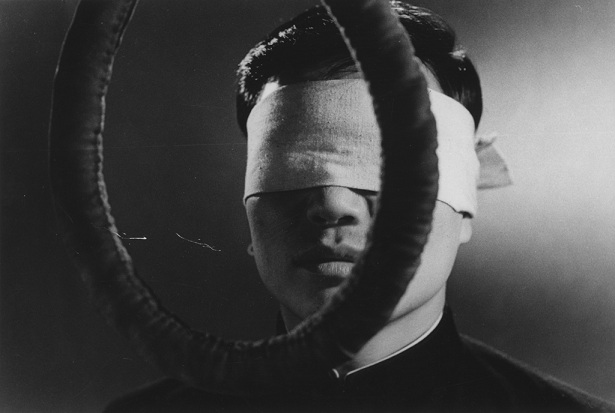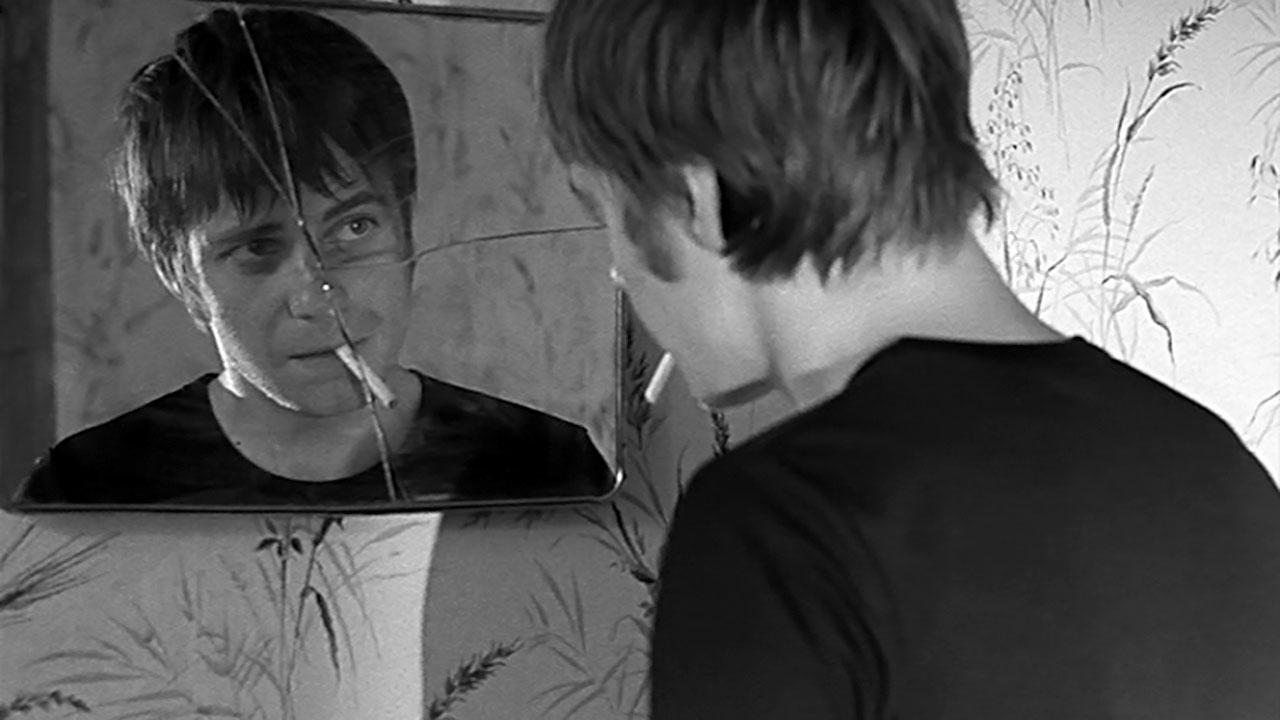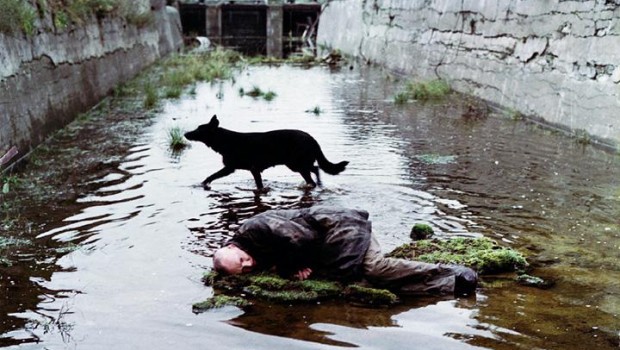
Cinema has always asked profound and timeless questions: What is it to be human? Are we alone in the cosmos? What is the meaning of life? It’s hard to pin down what makes a movie inherently philosophical, it’s not based on set criteria and they come in all shapes and forms — from bleak post-apocalyptic parables and bullet-riddled action-sci-fi to austere black-and-white character studies — but it’s safe to say you know one when you see it.
The common denominator in this list is that every title featured below grapples with the human condition head-on and is not afraid to deal with some of life’s big mysteries and fundamental questions — from the nature of reality, faith, loneliness, and the inevitability of death. In a nutshell, you’re not the same person once the credits roll, and if you’re lucky, you will have gained a valuable new perspective on life altogether. Listed in chronological order, here are 10 philosophical movies that will lodge in your brain, provoke deep introspection, and give you plenty to chew on.
1. Winter Light (1963)

A proven hand at soul-searching chamber dramas that reckon with heavy themes such as man’s search for meaning, the fundamentally absurd nature of existence, and God’s deafening silence, Ingmar Bergman was no stranger when it came to grappling with life’s big questions as evidenced in the superb middle entry in his unofficial trilogy about faith, sandwiched between “Through the Glass Darkly” and “The Silence”, about a forlorn small-town pastor (Gunnar Björnstrand) struggling to comfort a suicidal member of his congregation (Max von Sydow) amidst a crisis of faith.
Largely informed by Bergman’s Lutheran upbringing and released just months after the Cuban missile crisis had left the Western hemisphere shaken to its chore, the 1963s “Winter Light” addressed the elephant in the room that many atomic-age films tried to stray away from, positing that the absence of God in a hopeless and indifferent world on the brink of nuclear obliteration is not only plausible but rather understandable. It’s heavy stuff, and likely not the ideal way to kick off a first date, but try double-featuring it with “First Reformed” by Paul Schrader (another one of cinema’s great contributors to the feel-bad movie canon) if you feel like falling into a super-cynical slump.
2. Woman in the Dunes (1964)

A surreal thriller that gradually opens into a stirring examination of Sisyphean struggle, this two-time Oscar-nominated Japanese classic directed by iconoclast Hiroshi Teshigahara focuses on an amateur Tokyo entomologist by the name of Niki who misses the last bus while scouring for an unclassified bug species in the vast desert only to end up trapped without an escape route in a small hut at the bottom of a sand dune.
What if your life purpose was defined by circumstances beyond your control? Like the famed martyr from Greek mythology, Niki is condemned to seemingly repeat a thankless and meaningless task for eternity, in his case being forced into a life of labor shoveling sand ad nauseam for the local villagers along with the young widow stuck in the same predicament as him.
Noticeably influenced by the 1942 philosophical essay by Albert Camus as well as the works of Plato, Sartre, and Kierkegaard, “Woman in the Dunes” is a study of futility, existential dread and the banal repetition of life that filters a well-known literature touchstone through a markedly-20th-century working class lens. Though nowhere near as seen or discussed today as it wholly deserves, the film has been recently championed by world-class auteurs such as Martin Scorsese, Edgar Wright, David Cronenberg, and Ari Aster.
3. Death by Hanging (1968)

The inherently flawed morality of capital punishment, the dehumanizing dangers of rah-rah patriotism, and the systemic discrimination and disregard for immigrant lives in Imperial Japan all come under scrutiny in this ripped-from-the-headlines legal thriller based on a controversial rape case that swept the nation in 1958.
A Korean man who goes simply by ‘R’ is sentenced to death after being found guilty of rape and murder, except he somehow survives his own execution and promptly loses all his memories and sense of identity following the botched hanging. Struggling to figure out what to do with their technically executed but certainly-not-dead inmate, the prison officers proceed to re-enact R’s life and past crimes to get him to confess in absurdist and increasingly farcical vignettes in which they’re barely able to conceal their own cultural bias and hypocritical prejudices.
“Death by Hanging” is a dense watch overflowing with philosophical insights into the nature of our own self, how it is outwardly shaped by preconceived notions based on nationality and ethnicity and then viciously reinforced by the powers-that-be. But it’s also quite (morbidly) funny with a handful of laugh-out-loud moments that will put you in a fit.
4. The Man Who Sleeps (1974)

“It’s a day like this that you discover that something is wrong, that you do not and will never know how to live. You live in a blissful parenthesis, in a void full of promises and from which you expect nothing. You sleep, you walk, you continue to live like a laboratory rat abandoned in its maze by some absent-minded scientist. You are invisible, clear, transparent. You no longer exist.”
Probably no film has captured the deflating psychological effects of chronic loneliness, depression, and urban malaise in an increasingly isolated world as acutely as this 1974 black-and-white avant-garde film, which puts us in the shoes of a stoic, scornful Parisian college student who gradually becomes more detached from reality after making the conscious choice of no longer interacting with the world around him.
Boasting nothing remotely resembling a conventional narrative, Bernard Queysanne’s “The Man Who Sleeps” relies instead on its moody nihilistic voiceovers, arresting visuals, and prolonged sequences of its titular proto-Travis Bickle loner blending with the crowds and aimlessly roaming the streets of Paris as days slowly begin to blend together to move the story along and evoke a sense of loneliness and spiritual emptiness. 50 years on, it remains as depressingly relevant as ever and would fit in nicely with Mike Leigh’s corrosive “Naked”.
5. Stalker (1979)

The interplay between idealism and pragmatism is observed at a deep, granular level in Andrei Tarkovsky’s contemplative novel adaptation, one of the most analyzed sci-fi movies ever though one particularly prone to dubious conjecture, in which a disillusioned writer and a science professor (obvious stand-ins for their respective fields and clashing ideals) venture into a mysterious, barren wasteland blockaded by the military known as the Zone where the natural laws of physics seldom apply and innermost desires are said to be granted.
Through its core premise and the exchanges between these curious wayfarers, who bicker back and forth questioning each other’s motives but are both portrayed as poisoned by cynicism and equally terrified of what they’ll discover once their desires are manifested, “Stalker” suggests that our unconscious cravings might not be as pure and selfless as we’d like to believe and might be better left unknown. Are all men selfish and narcissistic by nature? Keep in mind that the Room allegedly grants one’s innermost desire, but that doesn’t mean that it’s the thing one believes to yearn for the most (this point is highlighted by the writer’s musings: “My conscience wants vegetarianism to win over the world. And my subconscious is yearning for a piece of juicy meat. But what do I want?”)
It’s through the virtues and moral conviction embodied by the titular character, whose only joy derives from helping others attain their desires by guiding them to the Room with no interest in entering himself, that Tarkovsky drives home a surprisingly hopeful message: Faith, love, and altruism are mankind’s utmost redeeming qualities and our only path to spiritual enlightenment.